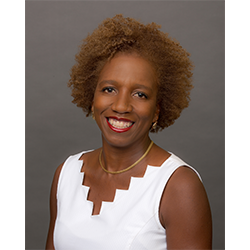Black Womanhood and Self-Identification in Afro-Latin American and Caribbean Literatures

When:
Tuesday, November 7, 2023
12:30 PM - 2:00 PM CT
Where: Crowe Hall, 1-132, 1860 Campus Drive, Evanston, IL 60208 map it
Audience: Faculty/Staff - Student - Public - Post Docs/Docs - Graduate Students
Cost: 0
Contact:
Margaret Sagan
margaret.sagan@northwestern.edu
Group: Latin American and Caribbean Studies
Category: Lectures & Meetings, Academic, Multicultural & Diversity, Global & Civic Engagement
Description:
What is to be a Latin American or Caribbean Black woman? This question launches my study of Black female’s self-identification processes, within our struggle to dismantle our socially constructed otherness. Delving into a wide selection of literary accounts of the Black experience, authored by contemporary Afro-Caribbean and Afro-Latin American women writers, I examine what I identify as their ontological self-birth. That is, the reinvention of the self, through carefully designed acts of labor involving the deconstruction of the ideas of Blackness, womanhood, and Latin American and Caribbean identities, while simultaneously producing new counterhegemonic epistemologies.
Havana-born writer and scholar Odette Casamayor-Cisneros is Associate Professor of Latin American & Caribbean Cultural Studies at the University of Pennsylvania. Centered on the Afro-Latin American and Afro-Latinx experiences, Professor Casamayor’s current work examines self-identification processes and the production of counter-hegemonic knowledge in the global African Diaspora. Previous publications include the 2013 book Utopia, dystopia e ingravidez: reconfiguraciones cosmológicas en la narrativa postsoviética cubana and the collection of stories Una casa en los Catskills in 2016. Her numerous award-winning academic, journalistic, and literary works are featured in renowned publications throughout the world. Casamayor-Cisneros earned a Ph.D. in Arts and Literature at the École des Hautes Études en Sciences Sociales (EHESS), in Paris, and holds a B.A. in Journalism from the University of Havana. Fellowships and grants from, among others, Harvard University, the Rockefeller Foundation, and the UNESCO have supported her research.